General Management Skills
Management a group of employees is never an easy task. Our courses will equip you to effectively onboard, motivate, manage diverse employees. Enhance your skills with courses like Shaping an Ethical Workplace Culture, Running an Effective Board Meeting, and Performance Management.

| Course Name | Course Description | Length |
|---|---|---|
| Business Continuity | A major business interruption can have devastating consequences for any business without a plan in place to handle it. In this course, the learner will find out why business continuity planning is essential, learn to recognize the forms in which disasters strike and the categories in which they fit, gain understanding of the importance of organization assets and the recovery time objective for each item and finally, learn to identify the eight categories that should be incorporated into every business continuity plan. | 1h |
| Business Writing Basics | Business Writing Basics provides a foundation for planning and writing various forms of business documents. Communicating effectively in writing has always been a requirement for many jobs, but with internet use reaching critical mass, it’s now a key skill for most jobs. This course guides you through the business writing process. Beginning with the considerations prior to putting pen to paper, or fingers to keyboard. Then receive tips and tricks for creating an effective document through style and structure, language use, and flawless spelling and grammar. | 1h |
| Conflict and Dispute Resolution | Conflict is part of everyday life in law enforcement, so learning how to apply principles of conflict and dispute resolution to your job is critical to diffusing conflict before it can escalate to dangerous levels. In this course, learners will explore the underlying causes of conflict as well as techniques for handling these conflicts in the field. Learners will also discover the importance of using effective communication skills. | 1h |
| Employee Recognition | Employee recognition is a communication device that reinforces and rewards the most important outcomes for an organization. As an employer, you will explore how to effectively design recognition programs, deliver genuine recognition and establish win-win relationships with your employees. | 1h |
| Employee Retention | The cost of employee turnover is outrageously high容stimates show that it can cost an employer anywhere between $45,000-$150,000 to replace an employee. Retaining talented employees requires a concerted effort on the part of companies and managers. In this course, learners are provided an overview of traditional and modern retention methods, practical tips for open communication with employees, and top reasons why managers and companies fail to retain employees. | 1h |
| Generational Differences | Generational differences influence nearly every facet of your organization, from hiring and recruiting, dealing with change, training, retaining employees, and communication. How can your organization better understand these differences and use these generational differences in a beneficial way? In this course, learners will examine the four most prominent generational workers, their core values, and how these come into play in the workplace. | 1h |
| Goal Setting Skills | This course trains employees to understand the importance of goal setting and how to set them effectively. It also helps them recognize barriers to implementing and achieving goals. | 30m |
| Interviewing Skills for Managers: Conducting an Interview | This course is designed to provide managers with the knowledge and skills to recruit and onboard the right talent. Behavioral interviewing is a proven hiring technique that will allow you to hire candidates who have the necessary skills to perform at the highest level on a job. This technique has a higher percentage than traditional interviewing processes for predicting the future of job candidates. | 1h |
| Managing Risk in an Aging Workforce | Did you know that the American workforce is getting older? Almost one-third of the U.S. population was born between 1945 and 1965, and the oldest members of this group are either retired or preparing to retire. Many organizations often overlook large-scale trends in the American population as potential risk factors. Demographic trends in the workforce, however, can significantly impact your organization’s ability to operate efficiently and effectively. Because long-term planning is often neglected, this course will provide learners with information necessary to identify demographic risks to your operations and will provide possible strategies that can be employed to address these concerns before they negatively impact your organization. | 30m |
| Meeting Management | This course will help managers understand the fundamentals of meeting management and group development. | 30m |
| Parliamentary Procedures | Whether you are an experienced leader or just beginning your role as a leader or member, knowledge of parliamentary rules and procedures is essential to conduct efficient and high-quality meetings. Every member needs to be aware of the methods of good procedure, and leaders need to be well-versed in the use of proper techniques. Good parliamentary procedure not only ensures order, it ensures justice to everyone, provides productive use of limited time, and ultimately gives everyone a sense of self-confidence. Defining roles and responsibilities, explaining the various types of meetings, and discussing the various ways to make a motion are critical to your success on any board, committee, or any organized formal meeting. | 1h |
| Performance Management | This course will help your managers understand the importance of performance management, both in annual reviews as well as through an ongoing process. | 30m |
| Providing Effective Onboarding | Organizations understand the importance of quickly assimilating a new hire to ensure success for the organization. This course explores the elements of onboarding and how to build an effective onboarding program by providing support tools, resources and best practices. | 1h |
| Retaining Talent | One of the most critical issues facing organizations today is how to retain their employees. Yet nearly one-quarter of all U.S. workers quit their jobs in 2006, and in some industries, the turnover rate is considerably higher. This one-hour course will educate employers on how to retain talent in their organization. | 1h |
| Running an Effective Board Meeting | Are your board members complaining behind closed doors? Are they frustrated that some board members are ill-prepared? Do they feel like their input is being overshadowed by other members? These are some of the common complaints by those who feel that board meetings are a waste of time and resources. Board member dissatisfaction is a huge barrier to the boards work. This course will focus on how to turn mentally-draining, routine meetings into meetings that are efficient and purposeful. | 1h |
| Science of Employee Engagement | This one-hour course in the Science of Employee Engagement delves deeper into the motivation, opportunities, and the science of engagement in the workplace. | 1h |
| Shaping an Ethical Workplace Culture | Workers create an organization’s culture of credibility, integrity, and excellence. When a group of employees honors an environment of ethical principles and foundation, the organization benefits from the culture. The instructional goal of Ethics in the Workplace is to highlight the importance of ethical behavior choice, examine ethical decision-making, and discover consequences of individual ethical attitudes on the organization as a whole. | 1h |
| Successful Customer Interactions | There is a strong correlation between customer satisfaction and the success of a business or department. Welcoming customers means working to create satisfied customers from the inside-out. When local government creates satisfied customers, we create empowered and informed citizens. In this course, learners will discover how to interact as co-workers and service providers. We will also cover understanding the customer goal and how to create goals that will lead to successful customer interactions. | 1h |
| The Aging Workforce: Leveraging the Talents of Mature Employees | Mature workers are generally defined as workers over age 55 with substantial experience. These skills are honed during decades of employment. Retaining talented, mature workers and recruiting new ones is simply good business for most organizations. | 1h |
| Time Management Skills | Time can feel like a fleeting object. With only so many minutes in the day to accomplish all of the tasks you set out to do, it’s important to be able to manage your time wisely and effectively. In this course, learners will explore the ways they can manage their time, defeat procrastination, and accomplish their goals not only in the workplace but also their personal lives. | 1h |
| Writing an Effective E-mail | This course covers the various components of an e-mail message, techniques for communicating effectively through email, and appropriate styles for different types of e-mail messages. | 30m |
